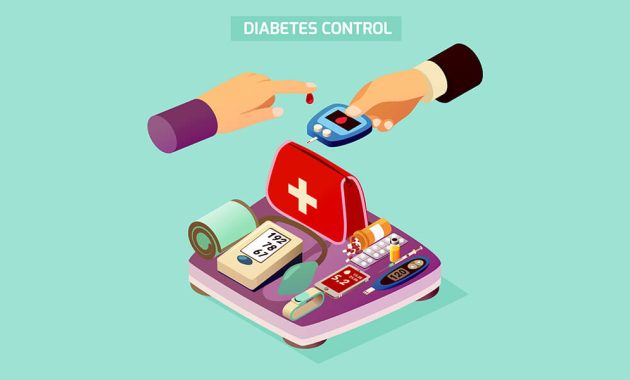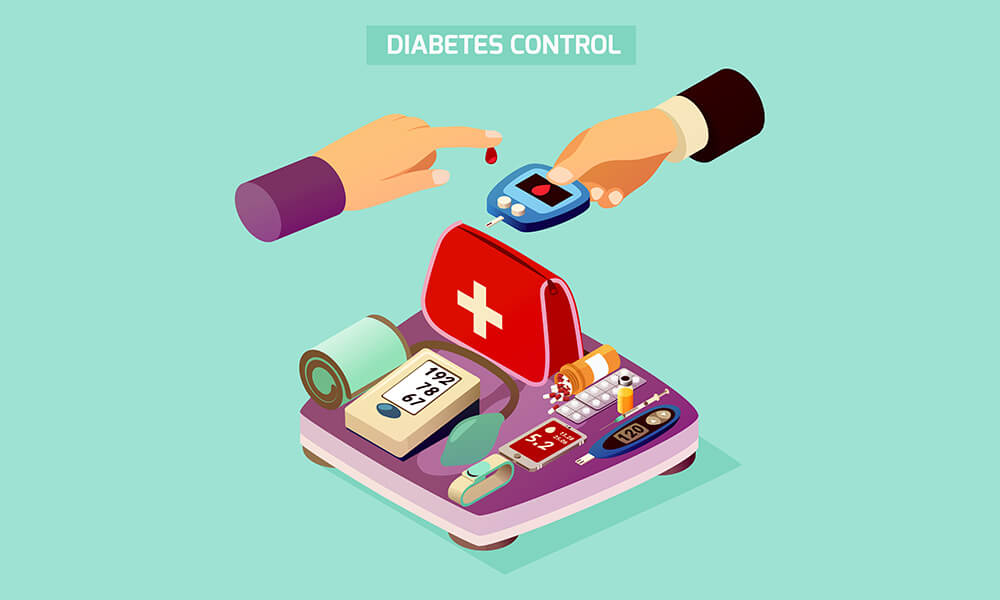
How to Embrace Self-Care When Managing Diabetes: A Comprehensive Guide
Living with diabetes demands more than just monitoring blood sugar levels. It requires a holistic approach, integrating medical management with a robust self-care routine. This is especially crucial to prevent burnout and maintain a good quality of life. This article dives into the essential aspects of self-care for individuals navigating the challenges of diabetes. It offers actionable strategies and insights. The goal is to empower you to prioritize your well-being and thrive despite the condition. The focus is on how to embrace self-care when managing diabetes.
Understanding the Link Between Diabetes and Self-Care
Diabetes is a chronic illness. It necessitates constant attention and adjustments. The daily demands of monitoring blood glucose, administering medication, and making dietary choices can be overwhelming. This can lead to stress, anxiety, and even depression. These emotional burdens, if left unaddressed, can negatively impact diabetes management. They can also worsen health outcomes. Self-care acts as a buffer against these negative effects. It also promotes resilience and overall well-being. It is a cornerstone of effective diabetes management. It is not a luxury, but a necessity.
The Pillars of Self-Care for Diabetes Management
Effective self-care in the context of diabetes encompasses several key areas. These pillars work together to support physical, mental, and emotional health. Addressing each pillar is crucial for comprehensive care. It also fosters a balanced approach to managing the condition. Let us explore these essential components:
Nutritional Management
Diet is fundamental to diabetes management. It directly influences blood sugar levels. A balanced diet should be a cornerstone of self-care. It should be rich in whole foods. These include fruits, vegetables, lean proteins, and whole grains. It is important to limit processed foods, sugary drinks, and unhealthy fats. Consulting with a registered dietitian can help create a personalized meal plan. This plan will meet individual needs and preferences. Regular meal timing and portion control are also vital for managing blood glucose. They are key elements of this critical self-care approach.
Physical Activity
Regular physical activity is another key component of self-care. Exercise improves insulin sensitivity. It helps regulate blood sugar. Aim for at least 150 minutes of moderate-intensity exercise per week. This can include brisk walking, cycling, or swimming. Incorporate strength training exercises twice a week. This builds muscle mass and further enhances glucose control. Always consult with your healthcare provider before starting a new exercise program. This is especially important to ensure safety and prevent complications. Staying active is an important aspect of how to embrace self-care when managing diabetes.
Medication Adherence
Taking medications as prescribed is essential for maintaining blood sugar control. Set reminders to take medications. Use pill organizers to simplify the process. Discuss any side effects or concerns with your healthcare provider. They can adjust dosages or recommend alternative treatments. Regular check-ups and monitoring are also crucial. This helps to ensure that your medications are effective. They also help to identify any potential problems early on. Medication adherence is a critical aspect of diabetes self-care.
Blood Glucose Monitoring
Regularly monitoring blood glucose levels provides valuable insights. It helps you understand how your body responds to food, exercise, and medications. Use a blood glucose meter to check your levels as directed by your healthcare provider. Keep a log of your readings. This helps you track patterns and identify any trends. Share your log with your healthcare team. This allows for appropriate adjustments to your treatment plan. Consistent monitoring is a key element of self-care. It empowers you to make informed decisions about your health.
Stress Management
Stress can significantly impact blood sugar levels. It can also make it harder to manage diabetes. Incorporate stress-reducing techniques into your daily routine. These could include deep breathing exercises, meditation, yoga, or mindfulness. Prioritize activities that bring you joy and relaxation. This can be reading, listening to music, or spending time in nature. Consider joining a support group or seeking therapy. This can help you cope with the emotional challenges of living with diabetes. Effective stress management is a vital component of self-care. It is vital for how to embrace self-care when managing diabetes.
Sleep Hygiene
Adequate sleep is essential for overall health. It also plays a crucial role in diabetes management. Aim for seven to eight hours of quality sleep each night. Establish a regular sleep schedule. Create a relaxing bedtime routine. This can include taking a warm bath or reading a book. Make sure your bedroom is dark, quiet, and cool. Avoid caffeine and alcohol before bed. Poor sleep can affect blood sugar levels. It also increases insulin resistance. Prioritizing sleep is an important aspect of self-care.
Practical Tips for Implementing Self-Care
Integrating self-care into your daily routine takes conscious effort. Here are some practical tips to help you get started:
- Create a Schedule: Allocate specific times for self-care activities. Treat them like important appointments.
- Set Realistic Goals: Start small and gradually increase the intensity or duration of your self-care practices.
- Track Your Progress: Keep a journal or use a mobile app to monitor your self-care habits and their impact on your well-being.
- Seek Support: Connect with family, friends, or a support group for encouragement and accountability.
- Be Kind to Yourself: Recognize that setbacks are normal. Don’t get discouraged if you slip up. Simply get back on track.
Overcoming Obstacles to Self-Care
Several factors can hinder self-care efforts. Recognizing these obstacles is the first step to overcoming them:
- Time Constraints: Schedule self-care activities. Even short bursts of self-care can make a difference.
- Lack of Motivation: Find activities that you enjoy. Make them a part of your routine.
- Financial Limitations: Many self-care activities are free or low-cost. These include walking, meditation, and spending time in nature.
- Emotional Barriers: Seek professional help. Consider therapy to address emotional challenges.
- Feeling Overwhelmed: Break down self-care into smaller, manageable steps.
The Role of Healthcare Professionals
Healthcare professionals play a critical role in supporting self-care. They provide education, guidance, and resources. They empower individuals to manage their diabetes effectively. Your healthcare team should include:
- Physicians: Provide medical management and monitor overall health.
- Registered Dietitians: Offer personalized dietary advice and meal planning.
- Certified Diabetes Educators: Provide education and support on diabetes management.
- Mental Health Professionals: Help address emotional challenges and provide coping strategies.
Regular communication with your healthcare team is essential. Discuss any challenges you are facing. Seek their advice and support. They can help you develop a personalized self-care plan. This is tailored to your individual needs and preferences. They are there to guide you on how to embrace self-care when managing diabetes.
Long-Term Benefits of Self-Care
Embracing self-care offers significant long-term benefits. These benefits extend beyond improved blood sugar control. They enhance overall well-being and quality of life. Some of these include:
- Improved Blood Sugar Control: Consistent self-care helps maintain blood sugar levels within a healthy range.
- Reduced Risk of Complications: Effective diabetes management reduces the risk of long-term complications.
- Enhanced Mental and Emotional Health: Self-care practices reduce stress, anxiety, and depression.
- Increased Energy Levels: Better overall health leads to higher energy levels.
- Improved Quality of Life: Self-care empowers you to live a full and active life.
- Greater Independence: Taking charge of your health promotes a sense of control and independence.
Conclusion: Prioritizing Your Well-being
Self-care is not an optional add-on. It is an essential component of effective diabetes management. By prioritizing your well-being. You can live a healthier and more fulfilling life. Incorporating the pillars of self-care into your daily routine. This will empower you to take control of your health. You will also thrive despite the challenges of diabetes. Remember that self-care is a journey, not a destination. Be patient with yourself. Celebrate your successes. Seek support when needed. By embracing self-care, you can achieve your health goals. You can also live a life filled with vitality and joy. This is the key to how to embrace self-care when managing diabetes effectively.
[See also: Related Article Titles]

